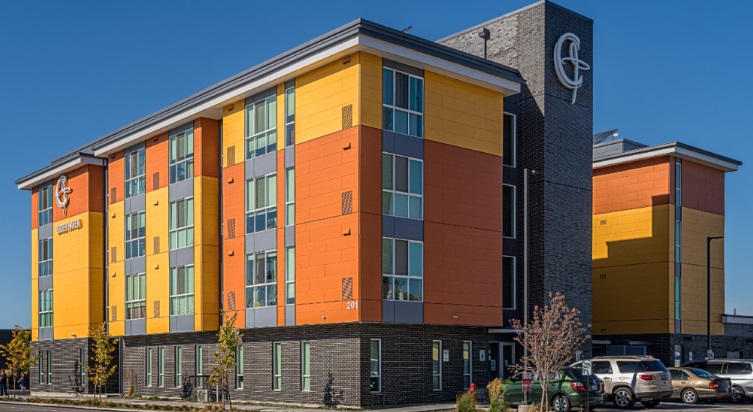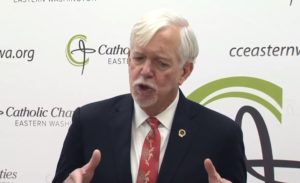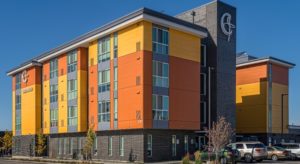
SPOKANE, WA – Washington State Governor Jay Inslee today was joined by several other dignitaries, including Washington State Commerce Director Lisa Brown, for the unveiling of the Catholic Charities Catalyst Project, an emergency supportive housing program that will create a new pathway out of homelessness for people in the community. Officials say there are currently several hundred homeless who are sleeping in tents without access to indoor plumbing, or permanent heat and electricity, at the Thor-Freya encampment known as “Camp Hope.”
“The Catalyst Project can provide a strategic enhancement to our current regional shelter system by providing 87 rooms to both men and women experiencing homelessness. In addition, 14 of the 87 rooms will be set aside for double occupancy,” Catholic Charities says.
At today’s event, Inslee said this project is great news – not just for the City of Spokane, but for the entire State.
Inslee says this project will give over a hundred people a “new shot at life.”
He adds that this Catalyst facility is NOT a band-aid – it is a permanent solution.
This is not the only thing that needs to be done to help the homeless situation in Spokane and across the State, Inslee says.
Washington State Commerce Director Lisa Brown, a longtime Spokane resident, says there is a lot of frustration in the community that the Camp Hope issue has not been resolved faster, but says the Catalyst Project is an important step in the right direction.
Brown says it’s not “just about a bed.”
Brown wants to assure the public that they are moving on a path which will provide the best longterm solutions. She says the public doesn’t want to see the homeless anymore.
LISTEN TO STORY:
About the Catalyst Project:
-
Location: 4301 W. Sunset Blvd, Spokane, WA 99224 (currently the Quality Inn hotel)
-
Open to both men and women
-
87 rooms which include beds and bathrooms (14 will be for couples)
-
Fully staffed security team who will patrol 24 hours a day, seven days a week, around a fenced and secured area
-
Robust Care Coordination services, including housing-focused opportunities, connections to behavioral health services, primary care, and public benefits
-
Contracted food services to provide three meals a day







